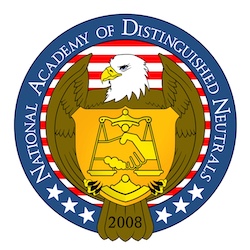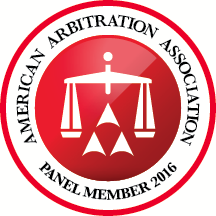Expertise
Mediation
Mediation vs. Arbitration
Mediations differ from arbitrations in one key aspect. The mediator is not the decision maker and does not have the power to impose a resolution on the disputing parties. The parties seek to reach a compromise agreement with the help of the mediator and through the use of the mediator’s specialized knowledge in the areas in dispute. Mediators can make recommendations and work to get the parties to settlement but they do not have the power to act as a judge in the matter Just like arbitrators, a mediator is a neutral party. They do not represent any party. Successful mediators excel at communication, negotiation, and listening. They may make alternative suggestions and look for workable solutions for all parties. Sometimes, judicial officers will serve as a settlement judge in a “settlement conference.” In this scenario, the judicial officer be the “mediator” and will not impose a resolution, but will work with the parties to help them reach a settlement.
Why People Choose Mediation
- It allows the parties more time to have their side heard. For example, a family law matter might only get a 2-hour hearing to resolve all of the issues. Conversely, mediations can be longer and allow issues to have a much deeper dive.
- Parties can design a process to fit their needs. They can break disputed issues into multiple mediations to help get items off the table so that there are fewer issues in dispute. This approach is very useful if there are multiple issues to decide.
- It may be an opportunity for the parties to identify the real issue that may be interfering with resolving the issue. Experienced mediators are able to isolate and identify the core problems.
- The choice of who mediates the matter and the depth of expertise and knowledge of that mediator. For example, if it is a divorce or a parenting time issue, a mediator with family law experience and knowledge would be ideal. If it is an issue involving probate or trust issues, then a mediator with probate law experience and knowledge should be able to assist.
- Mediation may be faster and less expensive than pursuing disputes through the court system.
- The mediator can help the parties craft creative solutions that are tailored to the issues in dispute.
Mediator Qualifications and Standards
Mediators are governed by the Model Standard of Conduct for Mediators. While there are currently no certification agencies for mediators in Arizona, other states do provide such training and certification. There are also extended education programs that hone mediators’ skills.
Jaburg Wilk Mediators
Jaburg Wilk has mediators who are skilled in mediating family law matters – Mervyn Braude, and a mediator who is skilled in mediating trust and probate disputes, Lauren Garner.

